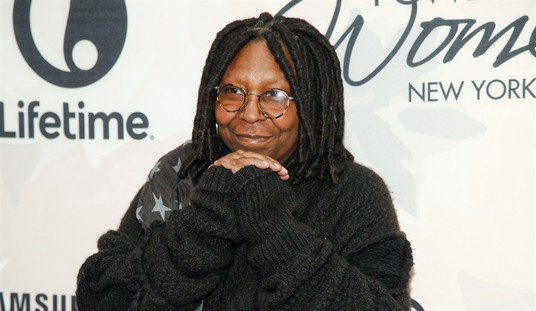[jwplayer player=”1″ mediaid=”79208″]
We’ll get to the above 1972 video of Walter Cronkite in just a moment, but first, let’s set the stage. Return with us now to the end of the 1960s and the dawning of the craptacular ’70s. As Power Line’s Steve Hayward wrote in the first volume of The Age of Reagan, environmentalism — then simply called “ecology” — became an obsession of the left shortly after President Nixon took office, eclipsing both anti-Vietnam war and pro-civil rights protests:
Writing in Science magazine, Amitai Etzioni of Columbia University dismissed ecology as a “fad,” and thought that “the newly found environmental dangers are being vastly exaggerated.” Even if not exaggerated, Etzioni thought the environment was the wrong priority: “Fighting hunger, malnutrition, and rats should be given priority over saving wildlife, and improving our schools over constructing waste disposal systems.”
This criticism was mild compared to the blasts that came from black civil rights leaders. The most bitter attack came from Richard Hatcher, the black mayor of Gary, Indiana: “The nation’s concern for the environment has done what George Wallace was unable to do—distract the nation from the human problems of black and brown Americans.” Whitney Young of the National Urban League was equally distressed: “The war on pollution is one that should be waged after the war on poverty is won. Common sense calls for reasonable national priorities and not for inventing new causes whose main appeal seems to be in their potential for copping out and ignoring the most dangerous and pressing of our problems.”
And being a good doctrinaire liberal, CBS’s Walter Cronkite was quick to move with the times and ride the fad. As left-leaning historian Douglas Brinkley noted in his 2012 biography of Cronkite:
A CBS Reports segment in September 1962 had Eric Sevareid famously interviewing the literary biologist Rachel Carson about the perils of the insecticide DDT at her home in Silver Spring, Maryland. Cronkite, at the time, had been focused on the Earth-orbiting flight of the second Mercury launch. But now that Neil Armstrong had walked on the Moon, Cronkite sensed that ecology would soon replace space exploration as the national obsession. CBS News producer Ron Bonn recalled precisely when Cronkite put the network on the front line of the fight. “ It was New Year’s Day, 1970, and Walter walked into the Broadcast Center and said, ‘God damn it, we’ve got to get on this environmental story,’ ” Bonn recalled. “When Walter said ‘God damn it,’ things happened.”
What could go wrong?
Cronkite pulled Bonn from nearly all other CBS duties for eight weeks so he could investigate environmental degradation. He wanted a whole new regular series on the CBS Evening News—inspired by Silent Spring, the philosophy of René Dubos, and those amazing photos of Earth taken by the Apollo 8 astronauts. The CBS Evening News segments were to be called “Can the World Be Saved?” “We wanted to grapple first with air pollution, the unbreathable air,” Bonn recalled. “But then we wanted to deal with the primary underlying problem, which was overpopulation.”
So, eugenics, then. And then a quick detour into global cooling. As Julia Seymour writes today at NewsBusters, “And That’s the Way It Was: In 1972, Cronkite Warned of ‘New Ice Age:’”
The late Cronkite is considered a “legendary journalist” and a pioneer in the field, which is why Marc Morano, publisher of Climate Depot, said this footage was so important. Morano is a former staff member of U.S. Senate Environment & Public Works Committee and producer of the upcoming global warming documentary Climate Hustle, set for release later in 2015.
“Global warming activists have claimed for years that the 1970s global cooling scare never existed. They have tried to erase the inconvenient history which ironically blamed extreme weather like tornadoes, droughts, record cold and blizzards on global cooling,” said Morano.
Morano told MRC Business, “But now — unearthed from bowels of media archives — comes none other than Walter Cronkite reporting on fears of a coming ice age in 1972. Having Cronkite’s image and face discussing global cooling fears reveals the fickleness of the climate change claims.”
“Climate fear promoters switched effortlessly from global cooling fears in the 1970s to global warming fears in the 1980s. In the present day, the phrase ‘global warming’ has lost favor in favor of ‘climate change’ or ‘global climate disruption’ or even ‘global weirding,’ Morano added. “’Settled science’ has never seemed so unsettled.”
By the way, let’s end with this inadvertently telling paragraph from Brinkley (his book, meant to celebrate Cronkite, raised many questions about the man who spent much of his career posing as Mr. Objective):
In January 1970, the promise of a new environmentalism brought about the end of [Cronkite’s future-themed series] The Twenty-First Century (which had succeeded The Twentieth Century in June 1967). No longer would Cronkite tolerate Union Carbide (a major polluter) as a sponsor. The Texas-based Fortune 500 company was the enemy of “Earthrise,” he told Bonn. At Cronkite’s insistence, CBS canceled The Twenty-First Century to coincide with the debut of the “Can the World Be Saved?” segments.
Yes, the crank science of the 1970s brought an end to the heroic phase of Kennedy and Johnson’s space program and its dalliance with embracing the 21st century a few decades early. And along with the collapse of the Great Society, which disillusioned the left when it tried to be all things to all voters, the optimism of the postwar 1950s and the first half of the 1960s would fade away, replaced by a grim nihilistic permanent malaise.
Exit question: Scott Pelley, the current incarnation of Cronkite on CBS has publicly likened those who question the “settled science” of global warming to Holocaust deniers, asking, “If I do an interview with Elie Wiesel, am I required as a journalist to find a Holocaust denier?”
What would he say if he ran into the 1972 iteration of Walter Cronkite?










Join the conversation as a VIP Member